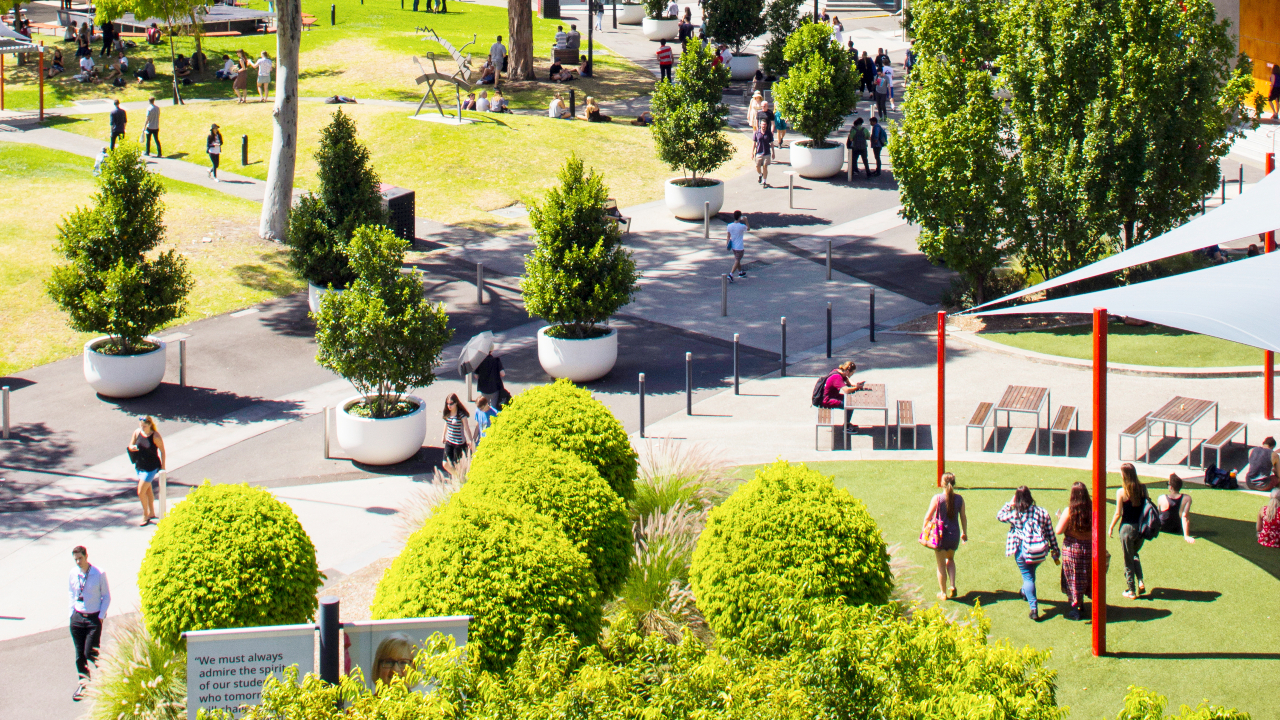Four ARC Future Fellowships for Swinburne researchers

In summary
- Four Swinburne researchers have received Future Fellowships in the latest round of Australian Research Council (ARC) grants
- The funded projects will focus on digital literacy and sexual health, producing solar fuels, nanoprinting digital IDs and supporting climate resilient cities
- The four-year fellowships provide a salary and up to $60,000 per annum in project funding from the ARC
Four outstanding researchers at Swinburne have been awarded prestigious four-year Future Fellowships in the latest round of Australian Research Council (ARC) grants.
Professor Katherine Albury, Associate Professor Tianyi Ma, Professor Baohua Jia and Professor Niki Frantzeskaki are the deserving recipients. Their research spans digital literacy and sexual health, producing solar fuels, nanoprinting of graphene-based digital IDs and supporting climate resilient cities.
The announcement continues Swinburne’s recent ARC success with five industry and community connected grants worth more than $2.5 million funded in the latest round of ARC Linkage Projects.
Swinburne’s Deputy Vice-Chancellor (Research), Professor Bronwyn Fox, said each of the Future Fellowships projects reflected the university’s mission to bring people and technology together to build a better world.
“Humanity is facing increasingly urgent challenges and Swinburne is committed to working at the cutting-edge of global best practice to address these,” Professor Fox said. “It is also fabulous to see that three of our successful Future Fellows are women, which reflects Swinburne’s active gender equity and diversity programs”.
“Congratulations to all the researchers who have been recognised today for their drive to positively shape societal transformation in a tech-led future.”
Future Fellowships projects
Four Swinburne researchers were awarded ARC Future Fellowships.
Professor Katherine Albury will look at how young adults use digital apps and social platforms to help improve sexual healthcare provision and inform sexual health policymakers and professionals.
Associate Professor Tianyi Ma’s project aims to minimise fossil fuel consumption, increase energy security and expand the clean energy industry by developing perovskite-based ferroelectrics for solar fuel production. These cutting-edge materials aim to improve the efficiency and sustainability of current fuel production methods.
Professor Baohua Jia aims to harness the unique properties of laser nanoprinted graphene metamaterials to create a new generation of micro-tags that could be used in everything from logistics and retail to personal care and biomedicine.
Finally, Professor Niki Frantzeskaki is developing a global atlas of nature-based climate solutions (such as conservation, restoration and improved land management actions) to help shape more climate resilient cities.
The Future Fellowships support excellent research and research training by outstanding researchers, drive national and international research collaboration and enhance the scale and focus of research in Australian Government priority areas.
Future Fellowships provide four years of funding to outstanding Australian researchers. In addition to four years’ salary, the ARC awards up to $60,000 yearly to help support the costs of research.
-
Media Enquiries
Related articles
-

- University
- Student News
Swinburne secures New Colombo Plan funding, expanding global opportunities for students
Swinburne has secured $943,000 in New Colombo Plan funding, expanding student opportunities for study, work and internships across the Indo-Pacific
Friday 06 February 2026 -

- Technology
- University
World-first partnership with Adobe drives tech-fluency at Swinburne
Swinburne has become the first Adobe Creative Campus in the world to provide all staff and learners with Adobe Creative Cloud, including Adobe’s full offering of generative AI tools
Tuesday 27 January 2026 -

- Design
- Technology
- Health
- Law
- Education
- Business
- Science
- University
- Engineering
Swinburne moves up in Times Higher Education World University Rankings by Subject 2026
Swinburne University of Technology has performed strongly in the Times Higher Education World University Rankings by Subject 2026, with two subjects moving up the ranks.
Thursday 22 January 2026 -

- University
- Engineering
Mechanical engineering alumni celebrate fifty years since graduation
Swinburne’s mechanical engineering graduates from 1975 celebrate a fifty-year anniversary, reminiscing on their time at Swinburne and their careers.
Tuesday 13 January 2026 -

- University
Australia Day Honours for Swinburne community
Swinburne alumni have been recognised for their service to various industries and communities in the 2026 Australia Day Honours list.
Monday 26 January 2026

